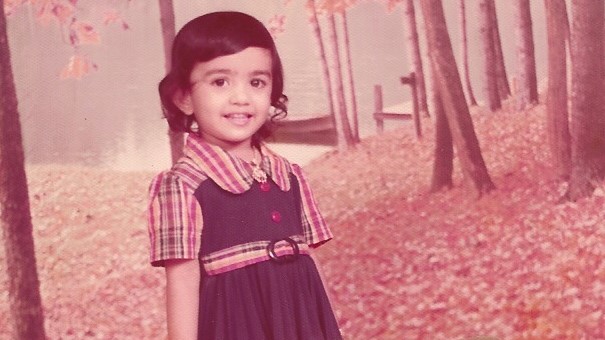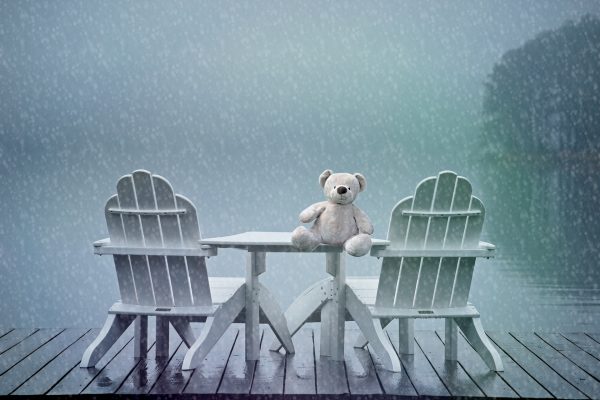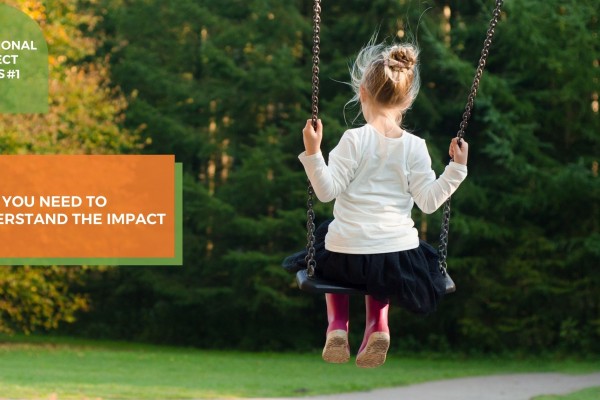When there is a special needs or mentally-ill child in the family, the impact on the well sibling is often not seen or understood. It is brushed aside with the focus being centred on the affected child and its parents / caregivers instead.
“As a child I tried desperately not to have a problem because our family had so many. So I became perfectionistic, hid my fears and concerns and needs from everyone.’’1
It’s not just from a micro point of view, but also a macro one, as evidenced by the lack of studies, surveys, reports on this topic.
While I don’t need to search for reports on this topic, seeing as how I am a sibling of a schizophrenic, I wanted to as I was curious about what was out there, and how others in my shoes were feeling.
And what a mind-boggling search that was.
It was like reading my life.
Whether they were official psychologist-led research reports or articles written by fellow siblings, reading them was like reading my life.
It was painful seeing in words what I have been subconsciously feeling all my life, but seeing it “validated” by others allowed me to finally acknowledge the anguish that mental illness inflicts on the well sibling.
(Now, while being mentally ill and having special needs are two different matters, the only reason why I am combining the term at times is because 1) this is about the other child, the sibling whose life is impacted in similar ways, regardless of which issue affects their sibling and 2) there are similarities in the parents’ management of the situation that I would like to focus on).
Across the articles that I read, these are some of the commonalities:
1. Brushing aside our own needs. This includes our need for emotional support and guidance. We learn at an early age that our needs and feelings are not as important as others.
2. Pressure to be perfect. Our parents are already overwhelmed and busy with our sick sibling, some of us do not want to add any extra burden. So we aim to be the perfect child.
3. Frozen grief. When someone dies, it is easy to understand that their friends and family are grieving. But with mental illness, the person dies as well, just not physically. Remember, before our sibling became ill, we had a relationship with them. Suddenly, the person we used to know is not there anymore.
4. Survivor guilt. Many of us feel the guilt of living our lives normally while our poor sibling suffers. It is irrational and does no one any good, but I can finally understand why I often say “I feel guilty”.
5. A never-ending worry. Whether it is explicitly mentioned or not, the concern of who will care for the sibling when our parents are no longer able to hangs over our head like a heavy, black cloud.
6. Psychic numbing. A term first coined by psychiatrist Dr. Robert Lifton, this is an adaptive response — when overwhelmed with loss, trauma, and sorrow, a human being will grow numb to their feelings. This allows them to continue to survive, and even to be able to talk about the “event” without feeling too connected to it.
7. Social isolation. This refers to the feeling of not quite belonging. It is not about how sociable one is. It’s knowing that the people with “normal” families around you simply do not get what you have gone and are going through.
8. Depression. I don’t think I need to explain this.
Saying the impact is catastrophic is not hyperbolic.
While reading the articles, words such as catastrophic and cataclysmic were used in the official reports to describe mental illness in a family.
And again, it seemed to give me the validation I needed. The acknowledgment that what siblings of a special needs or mentally ill person is living with is massive.
People just do not understand the full impact having a mentally ill parent or child in a family. How many times have I told someone that my brother is schizophrenic and I might as well have said my brother has cancer or is physically disabled to elicit more curiosity and as a result, understanding.
But again, it is likely that my fellow siblings have put aside their feelings, and don’t share too much. Not because we don’t want to. Because we think our side of the story is not as important as that of our sibling or parent. So we often speak from their point of view.
(Look at my own blog. It has been around for 6 months, and only now do I truly understand that I should write more from the sibling’s point of view).
A Damning Mix.
I have also spent the past 10 weeks or so in therapy and learned about Childhood Emotional Neglect (CEN)™.
And it has become clear as day to me. The impact of having a special needs or mentally ill child on the well child, coupled with CEN is a real thing.
Not every sibling would be as open or have a platform to share like me, so I am doing this. Even though it is tiring and distressing at times for me to keep thinking of and working on this.
(I would much rather be drinking wine and watching TV).
But I feel compelled to do so. This topic has so many aspects to it that I am breaking up my articles so that I can focus on each important point and not overwhelm my readers, whom I know do not have all the time in the world to read long articles.
So if you are a parent with a special needs or mentally ill child, this is for you. If you are a sibling of a special needs or mentally ill child, I hope you find some comfort / validation reading my articles.
And most of all, if you are just someone who knows someone with a special needs / mentally ill family member, I hope this will give you a new understanding to the difficult world this unique group of forgotten children / adults live in.
Preview of topics:
These are some of the articles that I will be writing. They are learning points from a combination of self-work, therapy sessions and the books I had been recommended. My articles are based on my own experiences as the sibling of a mentally ill child but some emotions and issues transcend boundaries, so I’m sure you’ll find a couple of articles that will resonate with you.
For all:
- The real impact on a sibling of a special needs / mentally ill child.
- How you can help your “okay” other child.
- Emotionally neglectful parents – do you know if you’re one?
- Childhood Emotional Neglect – the unseen trauma.
- Validating your feelings and why it’s crucial for better mental well-being.
- What it’s really like growing up with a schizophrenic brother.
- Exploring the unique issues brought on by the Asian family.
For the Adult Sibling:
- How to heal as an adult with Childhood Emotional Neglect.
- Survivor guilt – how to move on and live your life.
- For worse, but you can stand tall.
For the Child / Youth Sibling:
- Lessons learned if I could rewind my childhood.
- What happens to you when your sibling becomes ill?
- How to get the help you need when you are a sibling of a mentally ill child.
References:
1Anonymous quote as featured in Troubled Journey: Coming to terms with the mental illness of a sibling or parent; Diane T. Marsh, Ph.D. and Rex M. Dickens.
2Childhood Emotional Neglect (CEN).™ : A term coined by psychologist Dr Jonice Webb.






Dear how could I get in touch with you?
I am an emotionally neglected child since I was 4 years old. My mother had a difficult child birth, my brother had paresis, he was born with 70% of intelligence. I am 51 now. I neglected my emotional life. I do not have a husband or children. I am divorced 20 years ago. I felt I couldn’t make it work. I have low self-esteem. Had lots of problems on my extremely stressed work as a teacher. By the way I am an artist and I have a hipper sensitive personality. I chose alwas difficult situations. Since I am 40 I read a huge amount of very good books for self help. I have one psychologist. My parents started to understand that they made a mistake now in their late 70s. I don’t have the courage to work with them. Thay need to do it with psychothérapie, especially because they witness aggression that my brother expressed towards me last 17 years. My brother wanted from me to relocate to be able to take my appartement (is heritage) and to live in with his girlfriend. My parents never stopped his aggression towards me.
Thank you for your help.
Tiana
Dear Tijana, thank you for bravely sharing your own experience. I’m sorry it took me so long to reply. As a sibling, I understand your situation very well. I will share some of the books that I have read. 1. Dr Jonice Webb’s Running on Empty: Overcome Your Childhood Emotional Neglect. 2. Lindsay C. Gibson’s Adult Children of Emotionally Immature Parents. 3. Kate Strohm’s Being the Other One: Growing up with a Brother or Sister who has Special Needs 4. Margaret Moorman’s My Sister’s Keeper.
I have not read these but I would like to: 1. Troubled Journey by Dr Diane T. Marsh 2. Mad House by Clea Simon 3. The Normal One by Dr Jeanne Safer. I hope that you have gained from the therapy sessions, and continue to seek help when you need it. This is a lifelong journey for us.